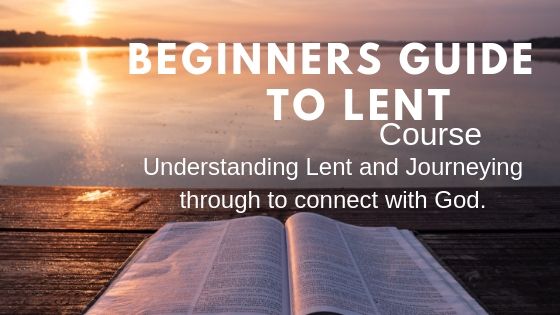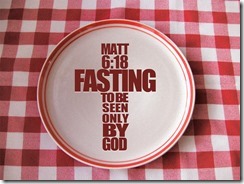
“Some have exalted religious fasting beyond all scripture and reason; and others have utterly disregarded it.” -John Wesley
What is fasting? What is its purpose and connection to Lent?
Fasting for the Jesus follower is to be a regular rhythm. Fasting has been part of the life of God’s people throughout biblical history. Sometimes the behaviour was commanded, and sometimes it was voluntary. 
Fasting takes on two important roles. One of mourning and one of hope.
Ken Berghuis provides a large list of all the reference to fasting or fasting events throughout scripture.
3 Purposes of our Fasting –
1. Worship of God
Throughout scripture fasting has been connected to giving devotion to God. It is a declaration of our dependence upon God. The act of fasting is a reminder that we live in need of God’s word and his Spirit in our life. Fasting accompanied with prayer, and reading of scripture helps centre us on Jesus.
“Our human cravings and desires are like rivers that tend to overflow their banks; fasting helps keep them in their proper channels.” -“Celebration of Discipline” by Richard foster
2. Seek God’s guidance – Throughout scripture fasting is seen as a way to seek direction from God. It becomes an extension of our prayer life.
3. An avenue to prepare to meet with God.
Scott Mcknight shares “Lenten fasting as [is] a response to sins and the prospects of death in our culture, our nation, our church, and our own life, and that we also learn to see fasting as entering into the divine pathos about sin and death.”
He later shares: “Lent reminds us where we were, who we were, what we were doing and have done, and teaches us to tell the truth about ourselves—that as image-bearers of God we have sinned against God in thought, word, and deed, in what we have done and in what we have left undone, in not loving God and ourselves and our neighbors as ourselves—and to turn to God for mercy.
We are not fasting to get something from God but to meet with him. Acts 13:2: “while they were worshiping the Lord and fasting, the Holy Spirit said,…”
Joel 20:26: “So all the Israelites, the whole army, went up to Bethel. They wept and sat there before the Lord; they did not eat anything that day until evening. They offered up burnt sacrifices and tokens of peace to the Lord.”
Tips for Beginners to fasting during Lent
a. Start slow.
Try fasting one meal time throughout your week. Then use that time to pray and read scripture.
b. Don’t eat extra snacks.
If you are fasting your lunch, do your best to not eat something till your next regular pattern of eating. Yes, you will be hungry.
c. Let the hunger pain remind you of your need for Jesus.
I often will pray, “I need Jesus more than food.” Know that the hunger pain will pass.
“Arm yourself manfully against the wickedness of the devil; control the appetite, and you will more easily control all bodily desires” – Thomas a Kempis
d. Drink water and drink more water.
e. Understand you may get tired.
When fasting, consider cutting back on your daily activity.
Fasting is connected to Lent because of its ability to help with self-examination. It allows us to reflect upon our own sin and need for the gospel. Fasting is not about our health and has everything to do with our journey with Jesus.
Whatever time you choose to fast during Lent, remember that the purpose is to draw closer to Jesus. Let it be a time to wrestle with your idols and take hold of Jesus.
The next post in this series will look at self-examination.